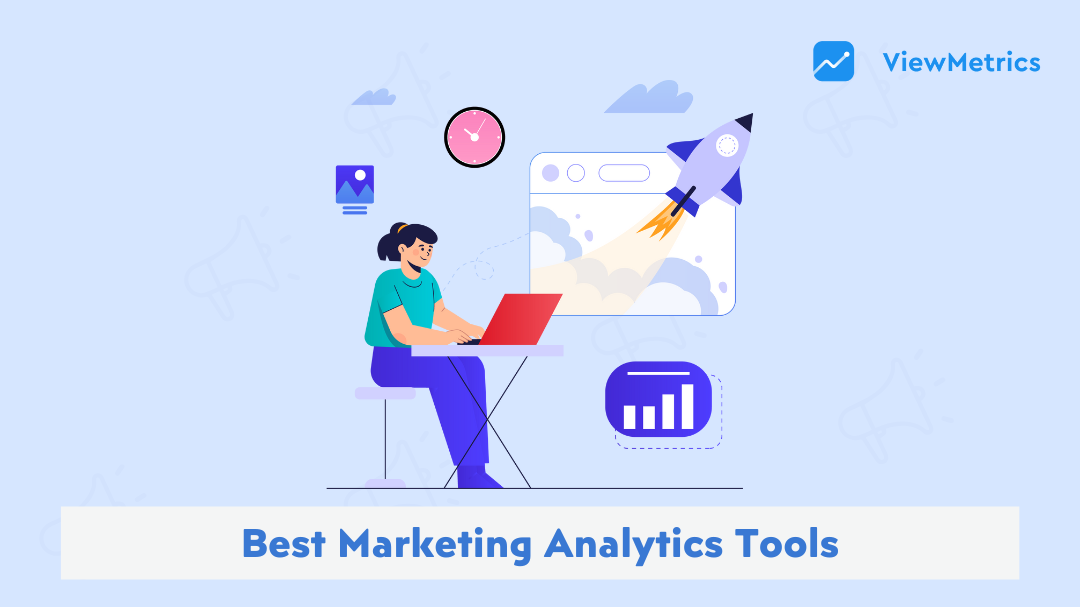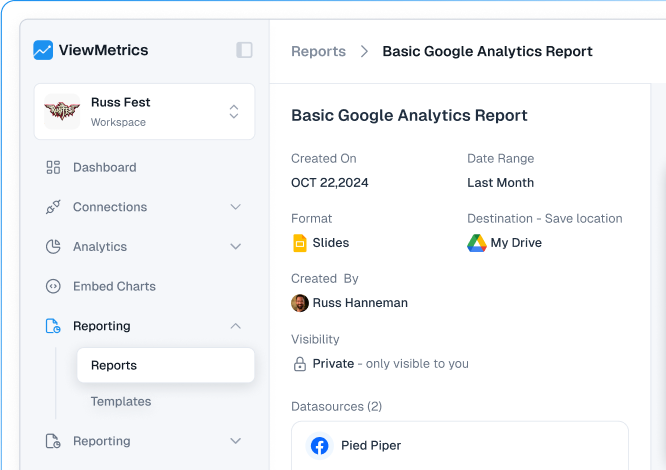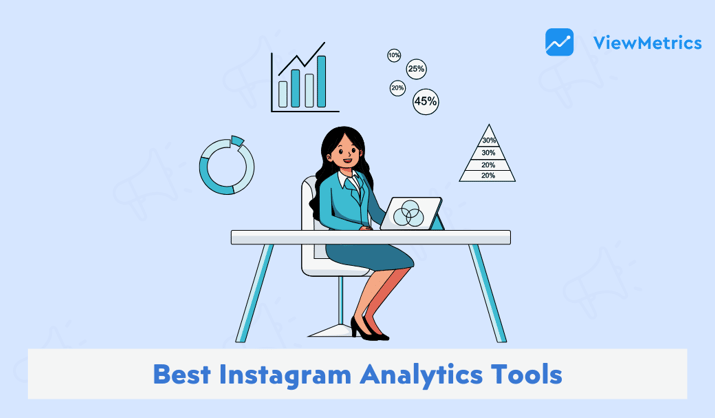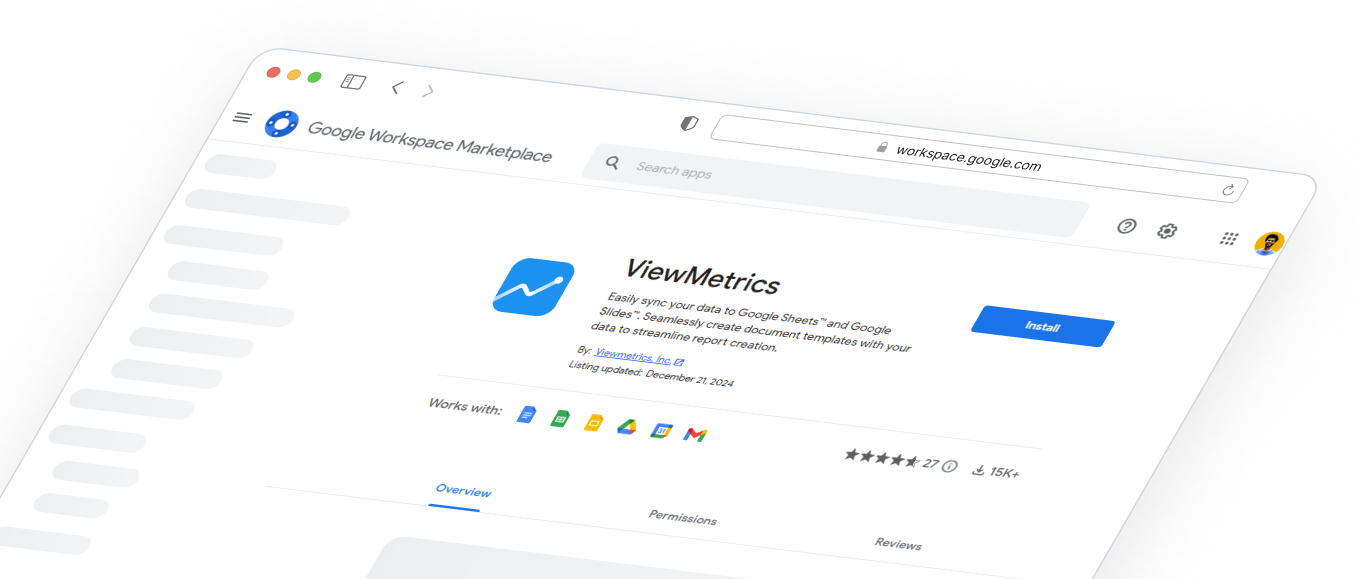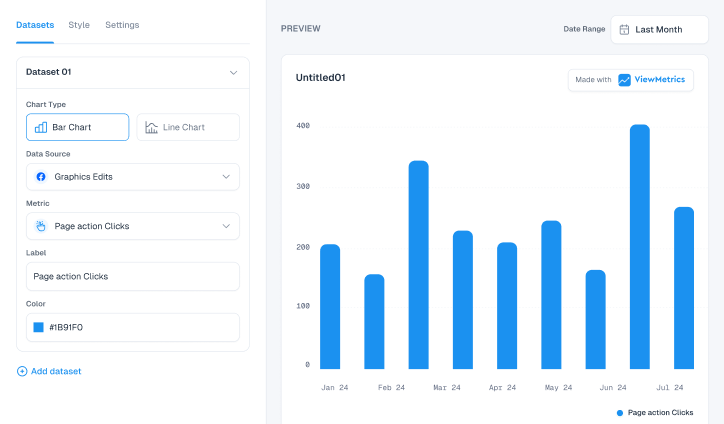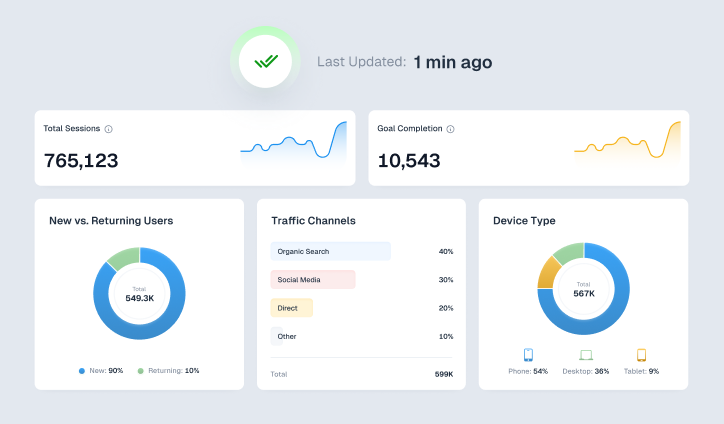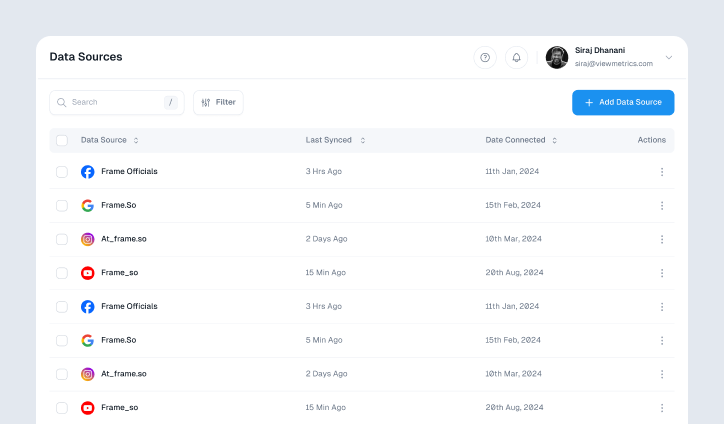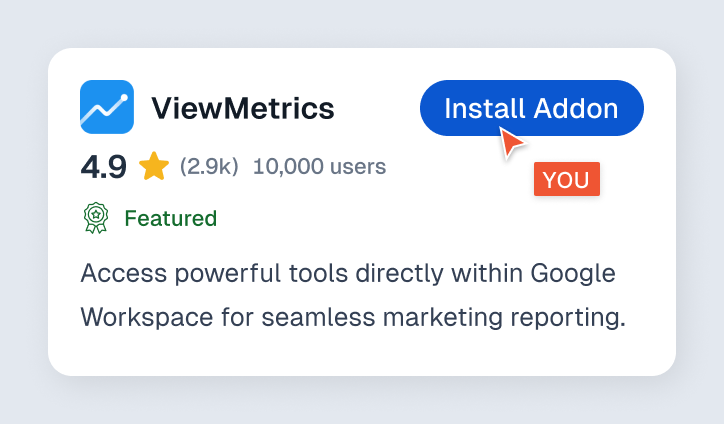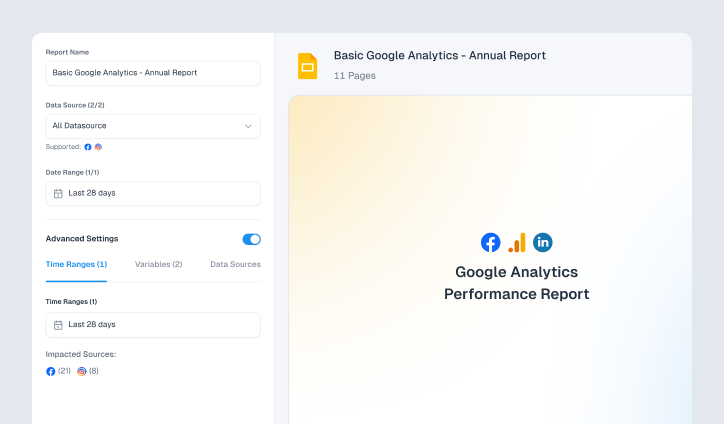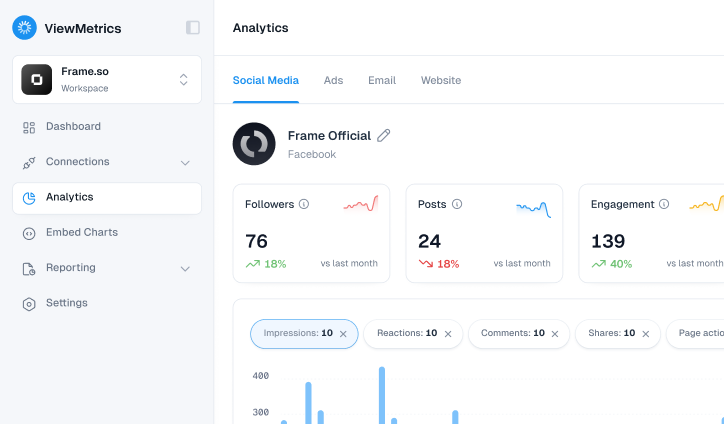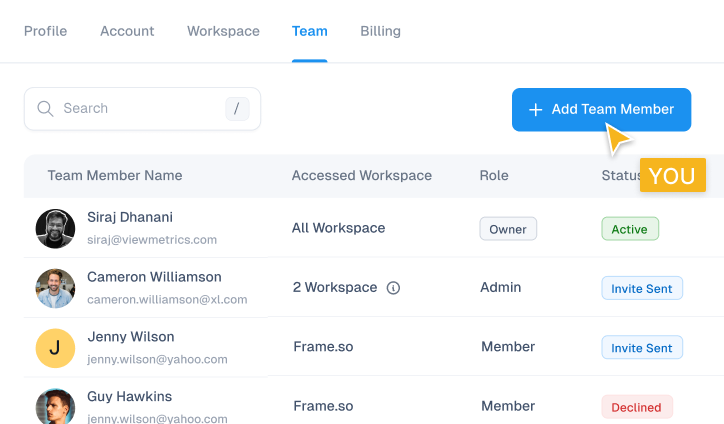Summary for the Blog
- Marketing analytics tools are crucial for data-driven decisions, optimizing ROI, understanding customer behavior, and tracking KPIs across channels.
- The article lists and analyzes 17 top marketing analytics tools for 2026 to help businesses analyze their marketing efforts.
- Key features to look for in these tools include multi-channel data integration, real-time analytics, customizable dashboards, easy platform integration, predictive/prescriptive analytics, custom event/goal tracking, and data export/API access.
- Businesses should evaluate tools based on budget and goals, considering free options like GA4, enterprise solutions like Adobe Analytics, or unified platforms like ViewMetrics.
Tapping into the best digital marketing analytics tools isn’t just about tracking pageviews or clicks. It’s about understanding customer journeys, attributing ROI across channels, and empowering your team to make decisions with confidence. That’s why we’ve put together a list of the 17 best tools to help you analyze your marketing efforts in 2026.
Best Marketing Analytics Tools of 2026
Here’s a curated list of the Best Marketing Analytics Tools of 2026
1. ViewMetrics

ViewMetrics is among the best marketing analytics tools out there that unifies data from every major ad platform, your CRM, email service, and website into one intuitive dashboard. No more toggling between tabs or exporting CSVs. This tool keeps everything in sync, refreshes in real time, and surfaces the metrics that matter most.
Features:
- Multi‑Channel Integration: Connect Facebook Ads, Google Ads, LinkedIn, Mailchimp, and more in minutes.
- Workspace: Streamline collaboration by organizing reports in separate workspaces for each client.
- Embed Charts: Effortlessly add and customize charts in your workspace and then embed them in Notion, Confluence, or any website.
Pros:
- Free plan available: Get started at no cost with 1 data source and core reporting features.
- Flexible Google Workspace integration: Native add‑on for Sheets, Slides, and Docs means no manual exports.
- Dedicated workspaces: Keep each client’s data and dashboards separate for clearer collaboration.
Cons:
- Limited data sources on the free plan: Only 1 account connection in the Free tier.
Pricing:
- Free: Up to 1 account
- Starter: $24.99/month (up to 3 accounts)
- Professional: $49/month (up to 10 accounts)
- Team: $119/month (up to 25 accounts)
View All Your Marketing and Website Data - Instantly
Connect Instagram, Mailchimp, Google Analytics & more
Pre-built dashboards, no setup needed
Save hours on reporting every week
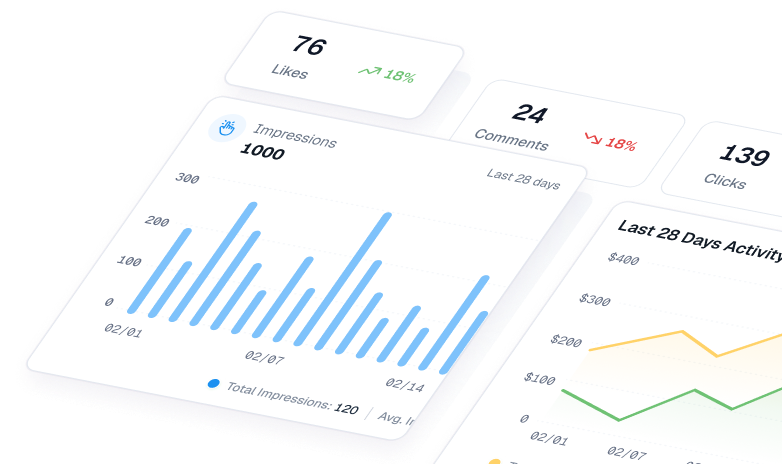
2. Google Analytics 4 (GA4)
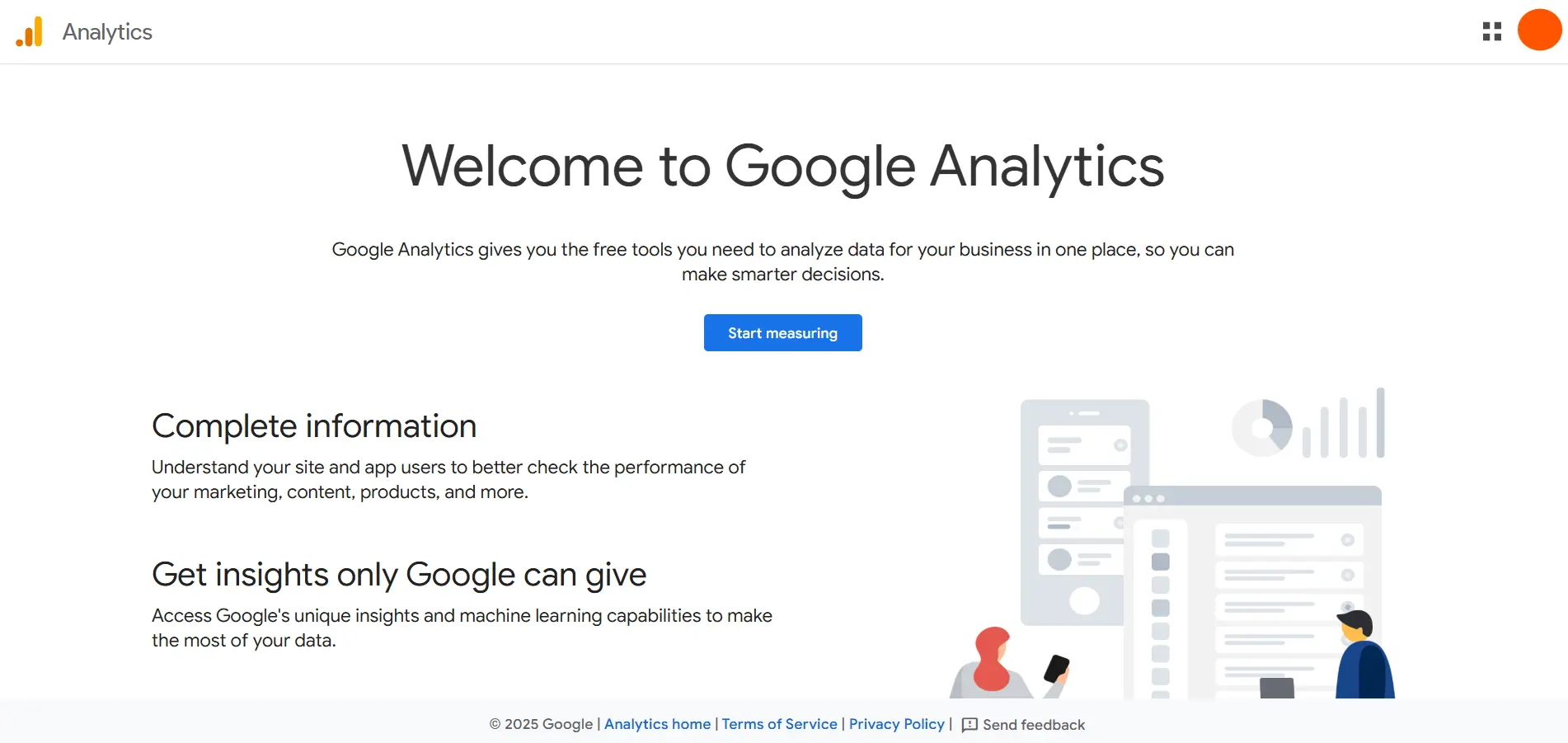
Google Analytics 4 has redefined website analytics with event‑driven data and deeper integration with Google’s ad ecosystem. It’s a good option for businesses that rely heavily on search and display ads.
Features:
- Event‑First Model: Track clicks, scrolls, and custom events without complex tagging.
- Cross‑Device Reports: Understand user behavior from mobile to desktop.
- Enhanced Attribution: Data‑driven attribution to assign credit accurately.
- Free BigQuery Export: Unlimited raw data exports for deeper analysis.
Pros:
- Completely free to use for most small and medium sites.
- Seamless integration with Google Ads and Search Console.
Cons:
- UI and metrics differ significantly from Universal Analytics, you need practice to master it.
- Limited out‑of‑the‑box visualization compared to dedicated BI tools.
Pricing:
- Free for standard usage
3. HubSpot Marketing Hub
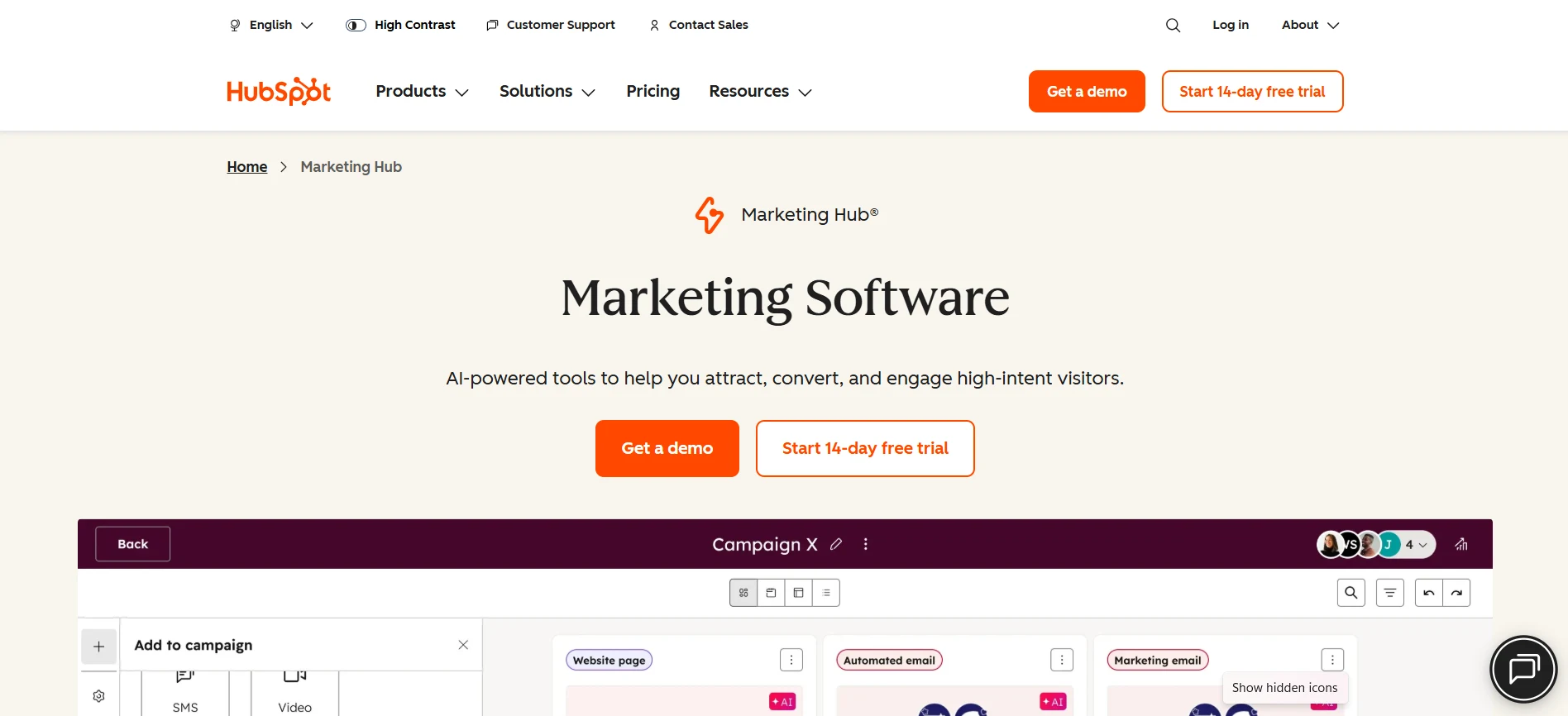
HubSpot Marketing Hub is a full inbound marketing suite. Its analytics capabilities shine when paired with email, CRM, and social media management in one ecosystem.
Features:
- Campaign Reporting: Roll up performance across emails, blogs, and landing pages.
- Customer Journey Analytics: Map touchpoints from lead to customer.
- Attribution Reporting: First‑touch, last‑touch, and custom models.
- A/B Testing: Optimize subject lines, CTAs, and page variations.
Pros:
- All‑in‑one platform eliminates data silos.
- Intuitive drag‑and‑drop dashboard builder.
Cons:
- Can be pricey for teams needing advanced features.
Pricing:
- Free: For up to 2 users
- Starter: $15/month/seat
- Professional: $890/month; includes 3 core seats
- Enterprise: $3,600/month; includes 5 core seats
4. Adobe Analytics
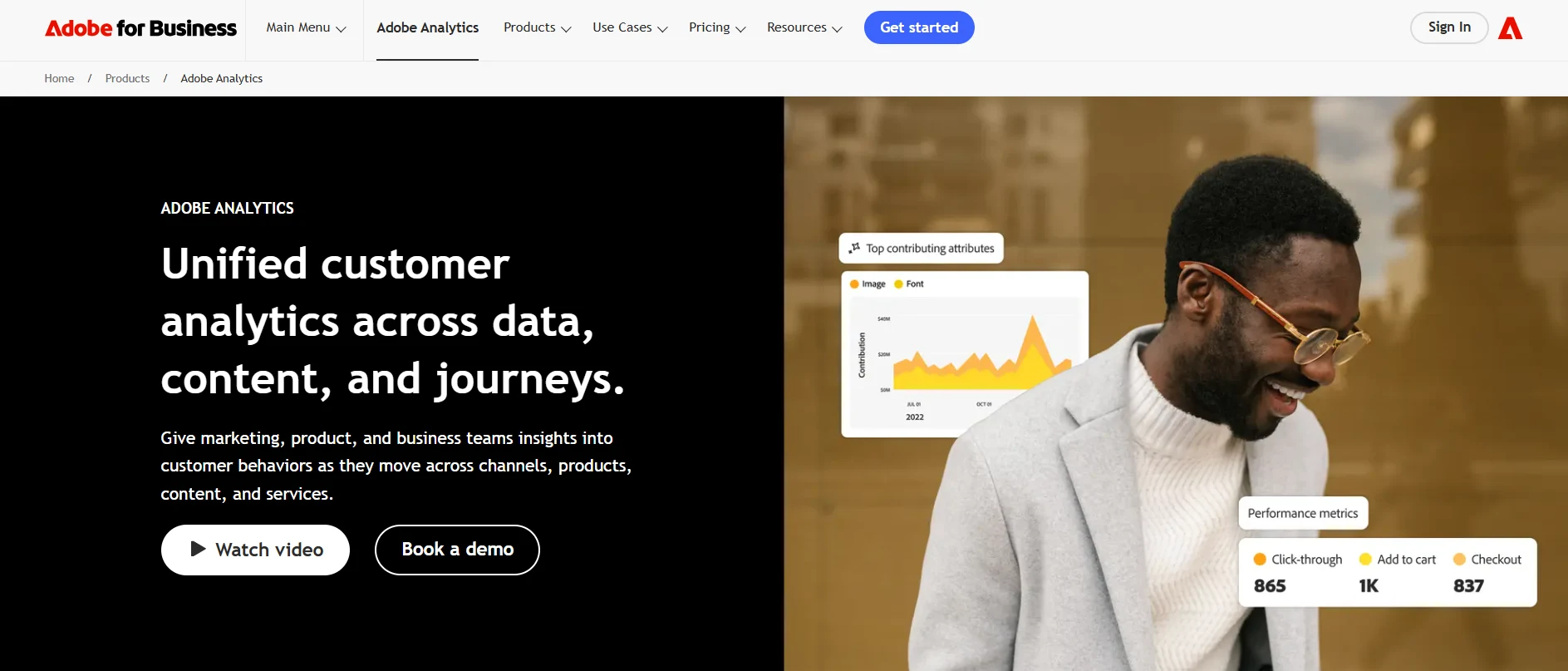
Part of the Adobe Experience Cloud, Adobe Analytics is an enterprise‑grade solution built for deep segmentation, predictive modeling, and real‑time data streaming.
Features:
- Real‑Time Analytics: Live dashboards for immediate insights.
- Customer Journey Analysis: Visualize multi‑step funnels.
- Breakdown Reports: Segment data by dimensions and metrics.
Pros:
- Enterprise‑level scalability.
- Advanced segmentation and cohort analysis.
Cons:
- Requires significant setup and customization.
- High total cost of ownership.
Pricing:
- Custom enterprise pricing
5. Mixpanel
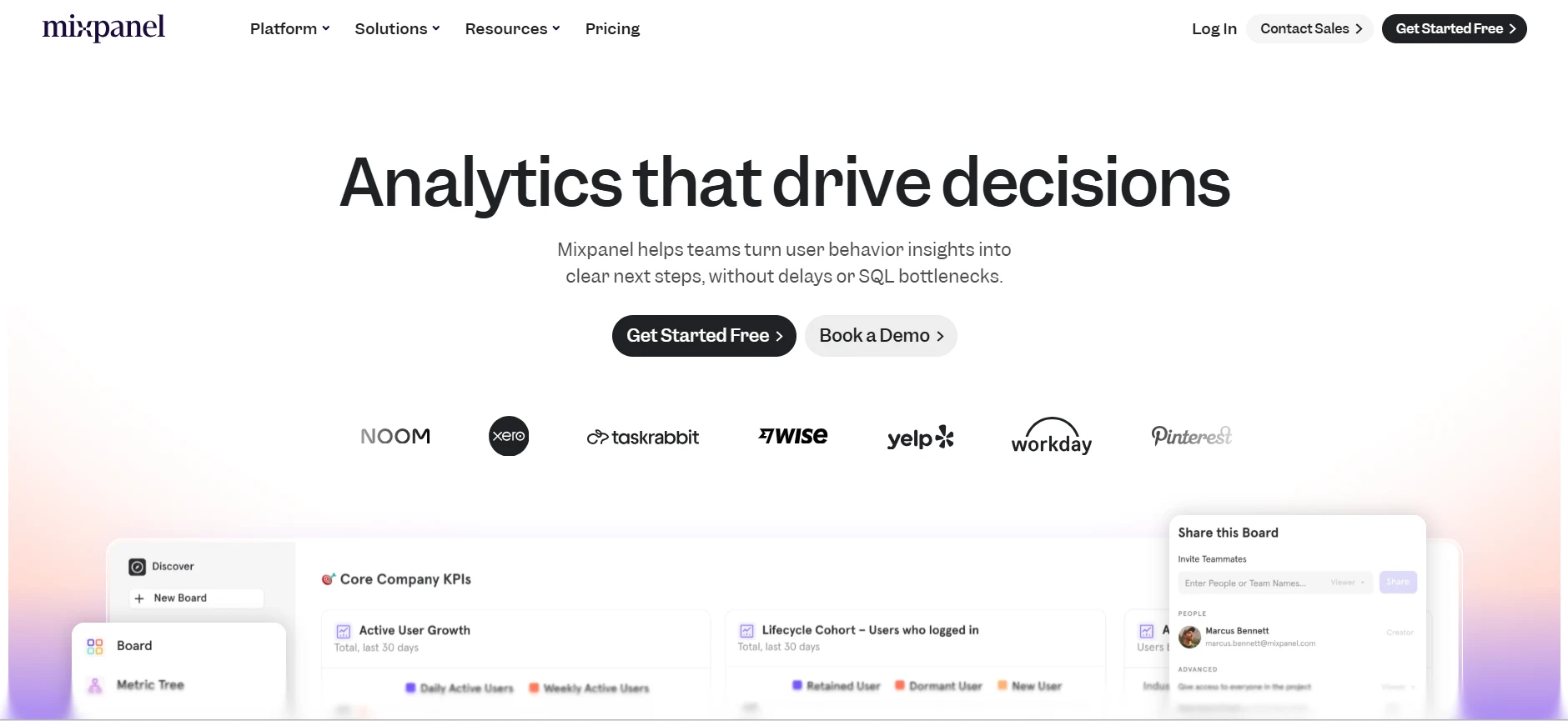
With a focus on product analytics, Mixpanel tracks user events and funnels to optimize engagement and retention.
Features:
- Funnel Analysis: Track conversion steps in detail.
- Retention Reports: Cohort‑based user retention.
- Signal Insights: Correlate events for deeper understanding.
Pros:
- Tailored for product and mobile analytics.
- Easy cohort creation and comparison.
Cons:
- Limited website event tracking out‑of‑the‑box.
- Advanced JQL queries require coding.
Pricing:
- Free: Up to 1M monthly events
- Enterprise: Custom options available
6. Kissmetrics
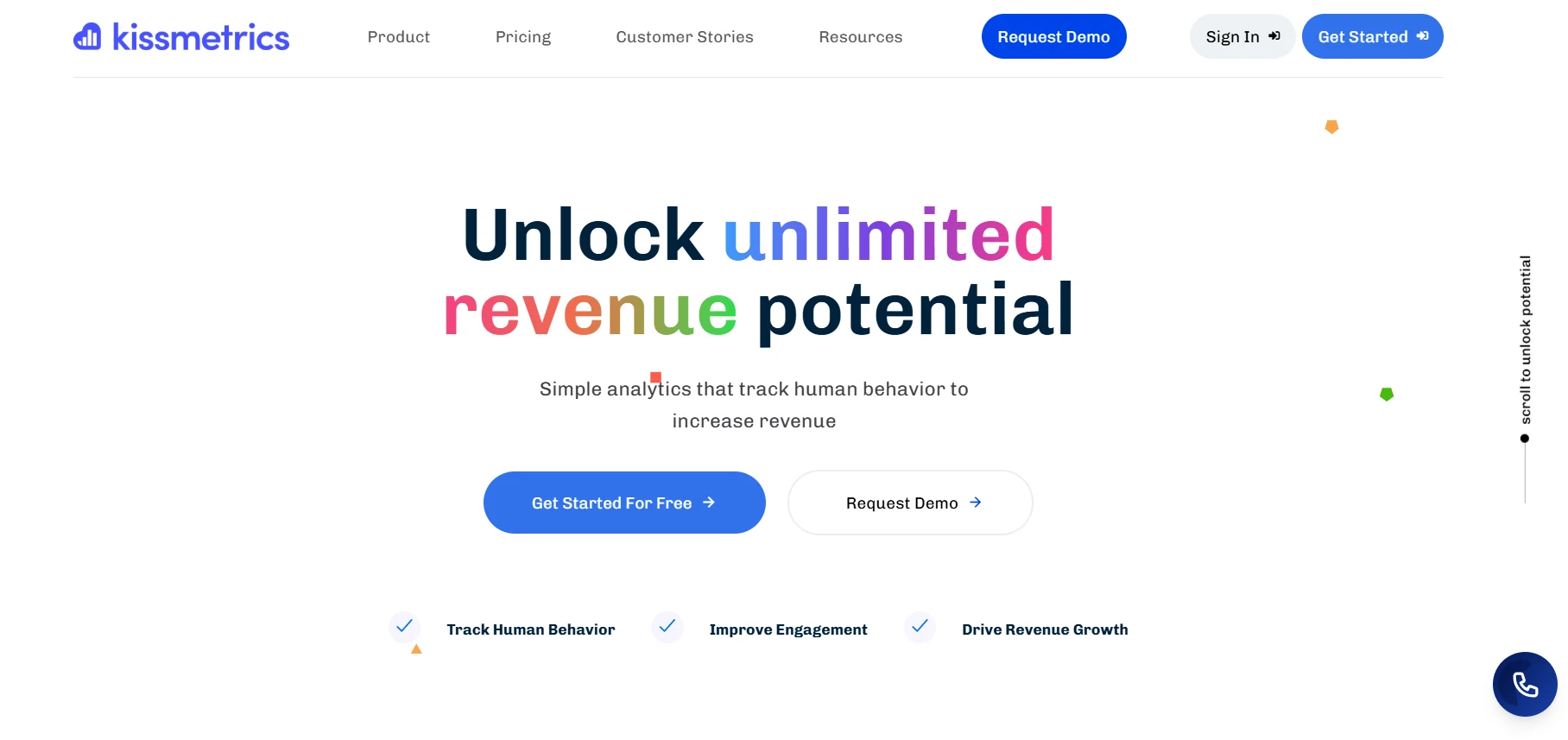
Kissmetrics specializes in behavioral analytics, linking anonymous data to user identities once they convert, perfect for e‑commerce and subscription models.
Features:
- People Reports: User‑level behavior tracking.
- Revenue Metrics: Link conversions to revenue.
- Behavioral Analytics: Segment by actions taken.
Pros:
- Strong focus on revenue attribution.
- Built‑in cohort analysis.
Cons:
- Higher entry price for small teams.
Pricing:
- Growth: $500/month
- Power: $850/month
- Enterprise: Custom pricing available
7. Hotjar
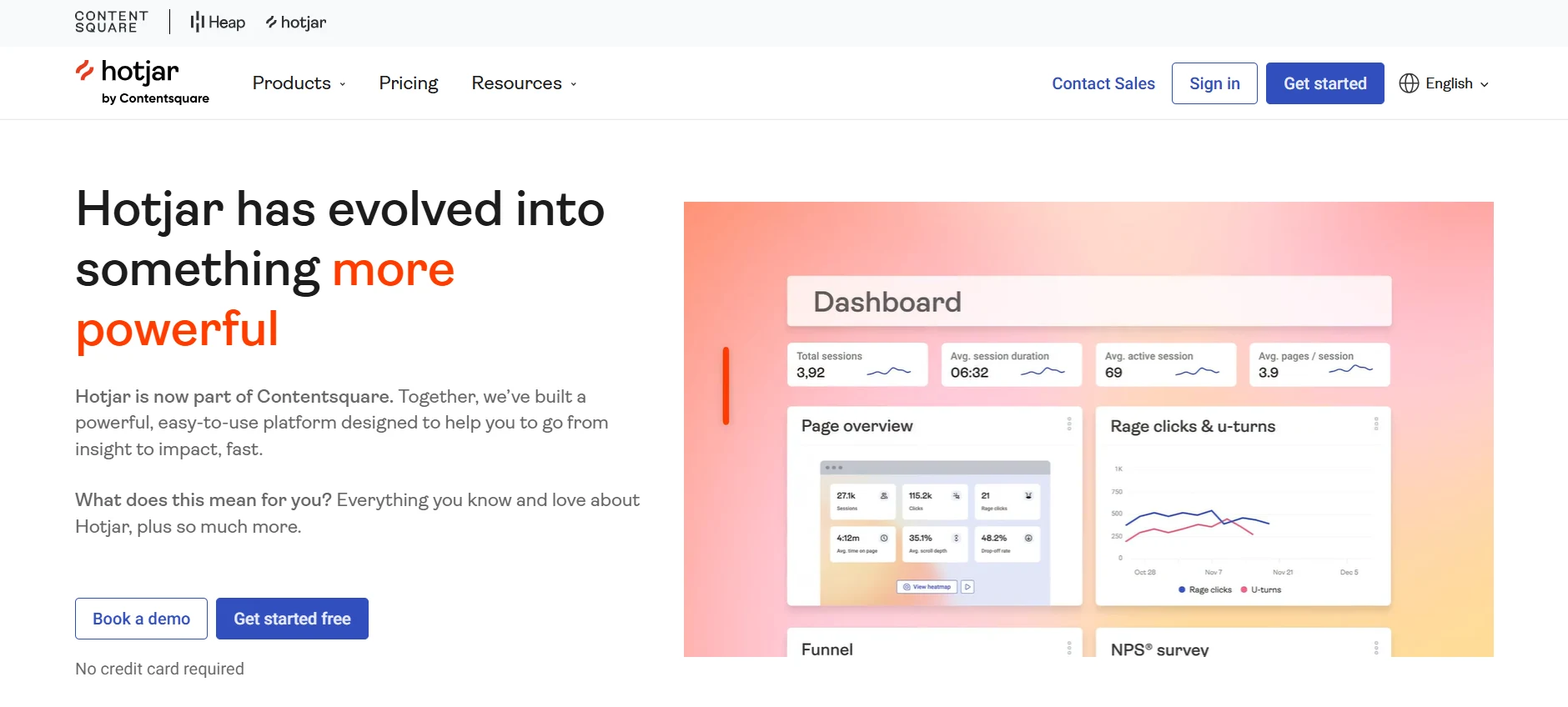
Hotjar adds qualitative insights, heatmaps, session recordings, and surveys to your quantitative data stack.
Features:
- Heatmaps: Click, move, and scroll tracking.
- Session Recordings: Watch real user sessions.
- Feedback Polls: On‑page surveys and NPS.
Pros:
- Quick install with one script.
- Visual insights into user frustration.
Cons:
- Sampling limits on lower tiers.
- No advanced funnel tracking.
Pricing:
- Basic: Free (35 daily sessions)
- Plus: $39/month
- Business: $99/month
- Scale: $213/month
8. Crazy Egg
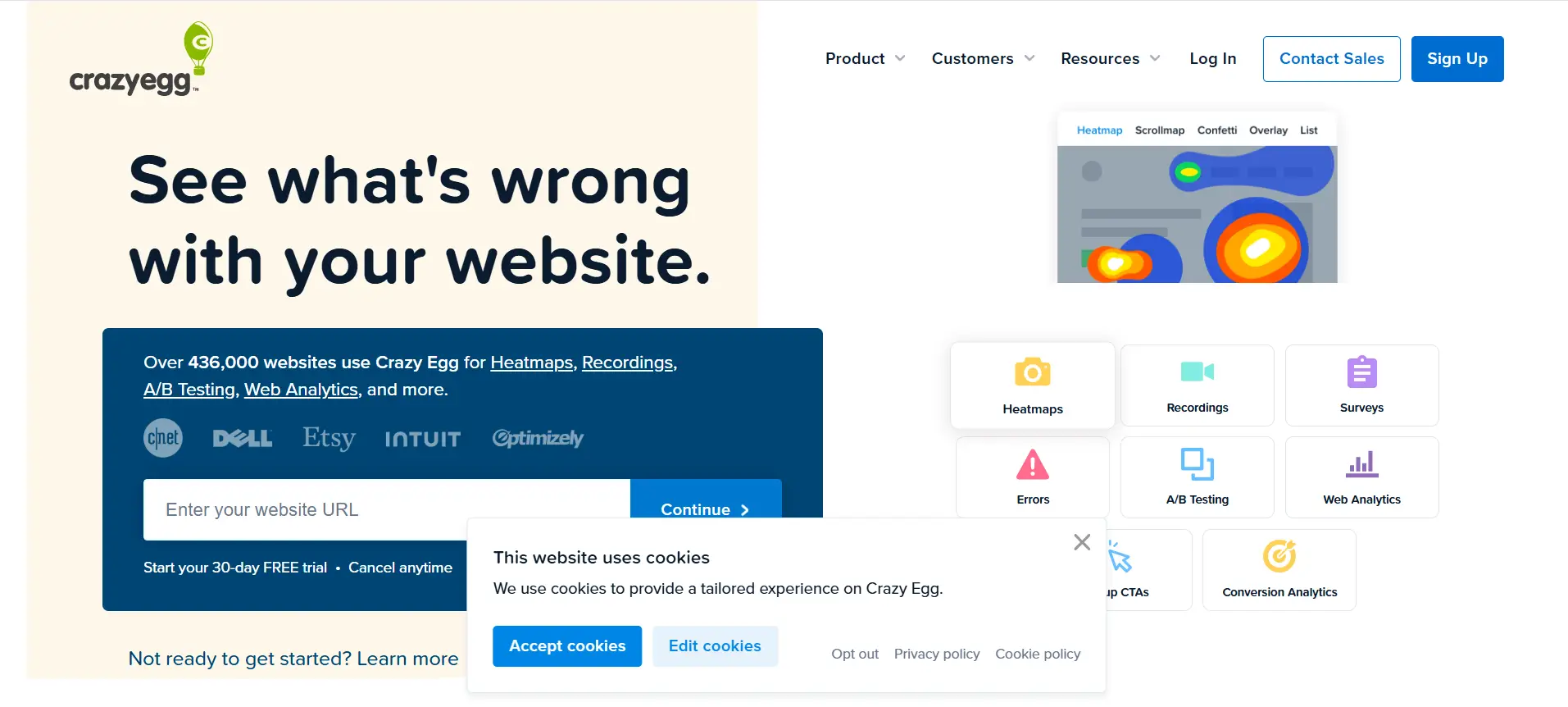
This tool for marketing analytics focuses on visual reports and A/B testing to improve UX and conversions.
Features:
- Create: Heatmaps and scrollmaps.
- Snapshot Reports: Compare page versions.
- A/B Testing: Built‑in split testing.
Pros:
- Visual, easy‑to‑interpret reports.
- No coding required for tests.
Cons:
- No free plan.
- Limited advanced segmentation.
Pricing:
- Starter: $29/month
- Plus: $99/month
- Pro: $249/month
- Enterprise: $499/month
9. Semrush
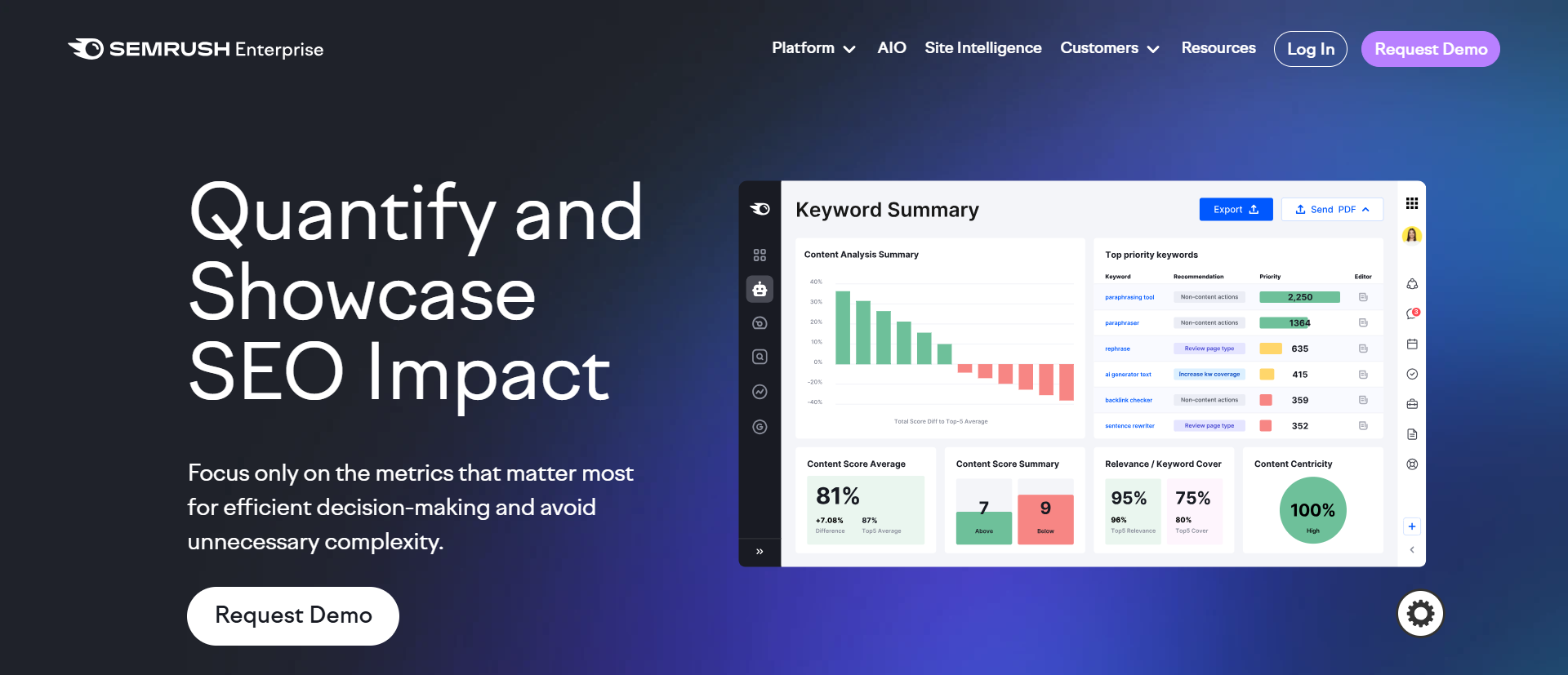
Semrush is an AI‑powered digital marketing platform designed to help businesses of all sizes boost their online visibility and grow their brand. It offers an all‑in‑one, modular solution that combines tools for SEO, competitive research, content creation, ad optimization, social media management, local marketing, and AI‑driven insights.
Features:
- Domain Analytics: Traffic and keyword trends.
- Social Media Tracker: Unified social performance.
- Advertising Research: Competitor ad analysis.
Pros:
- Extensive competitive data.
- Large, regularly updated database.
Cons:
- Overwhelming for new users.
- API access is only available on higher tiers.
Pricing:
- Pro: $139.95/month
- Guru: $249.95/month
- Business: $499.95/month
10. Ahrefs
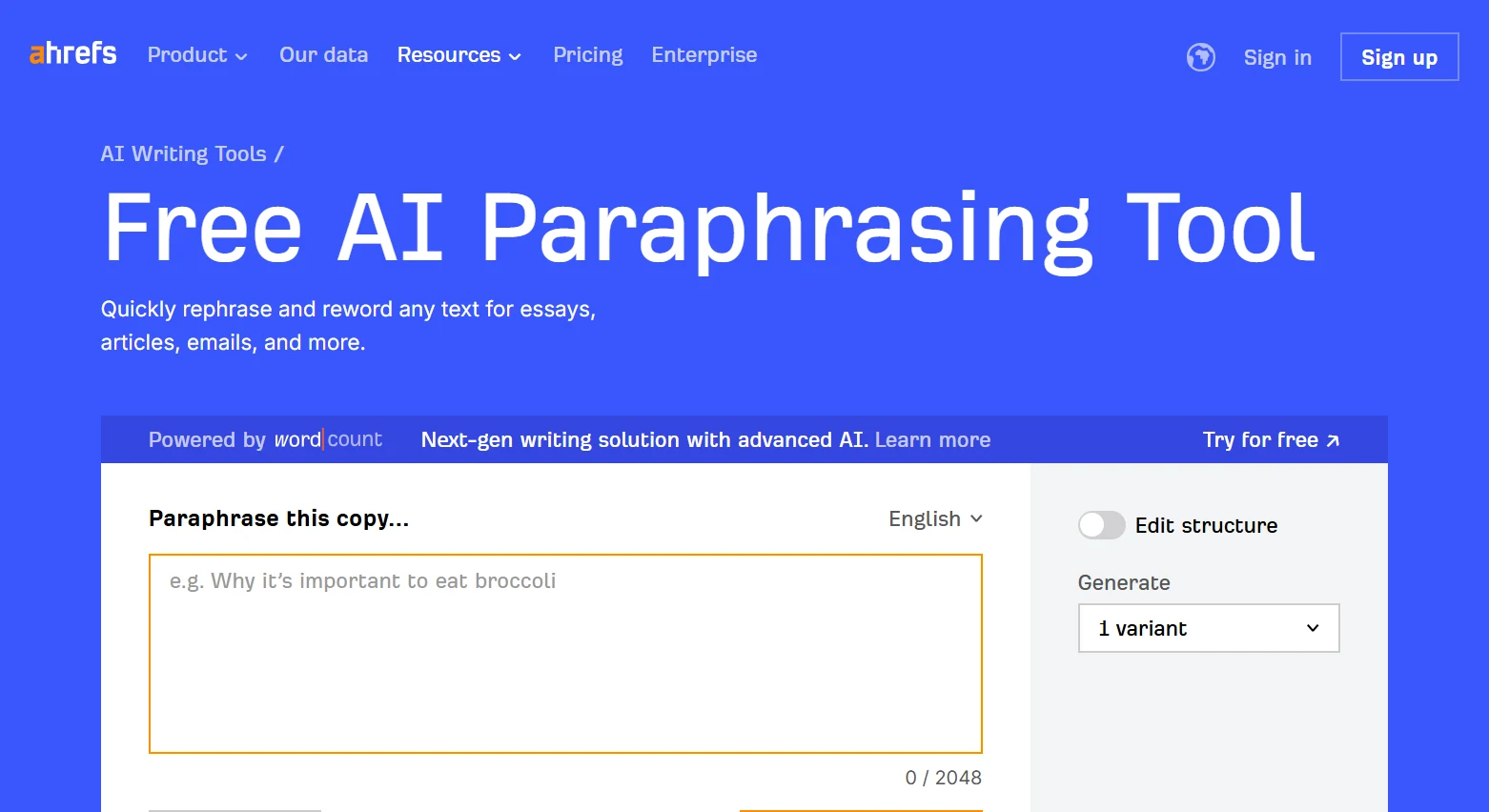
Ahrefs is an all‑in‑one SEO toolset designed to help you grow search traffic and optimize your website. It crawls the entire web and makes it accessible through a simple, intuitive interface.
Features:
- Site Audit: Technical SEO crawl reports.
- Rank Tracker: Daily keyword ranking updates.
- Content Explorer: Discover top‑performing content by topic.
Pros:
- Largest backlink index.
- Intuitive keyword research tools.
Cons:
- Limited social/ad data.
- Pricier than some SEO‑only platforms.
Pricing:
- Lite: $129/month
- Standard: $249/month
- Advanced: $449/month
11. Tableau

Tableau is a visual analytics platform that helps people see, understand, and act on data. It transforms the way organizations explore and share insights, enabling users to build interactive dashboards, uncover trends, and make data‑driven decisions more intuitively.
Features:
- Drag‑and‑drop visualizations.
- Live and extract data connections.
- Storytelling dashboards.
Pros:
- Highly customizable visuals.
- Strong community support.
Cons:
- Requires data prep skills.
- Desktop client installation is needed.
Pricing:
- Tableau Viewer: $15/user/month
- Tableau Explorer: $42/user/month
- Tableau Creator: $75/user/month
12. Looker (Google Cloud)

Looker is a Google Cloud business intelligence platform that helps you explore, share, and visualize your company’s data so you can make better business decisions. It provides a self‑service data exploration and dashboarding interface for end users, an IDE (via LookML) for data modelers, and rich embedding and API capabilities for developers.
Features:
- LookML Data Modeling: Centralized metric definitions.
- Embedded Analytics: Integrate dashboards into products.
- Data Actions: Trigger workflows directly from reports.
Pros:
- Consistent metrics across teams.
- Powerful embedding options.
Cons:
- Requires LookML development.
- Premium pricing.
Pricing:
- Custom, enterprise-level pricing
13. Supermetrics

Supermetrics is a fully managed, no‑code marketing data pipeline that lets you replicate metrics and dimensions from sources like Facebook, Shopify, Google, and Salesforce into your analytics and reporting platforms.
Features:
- Prebuilt Connectors: 70+ platforms supported.
- Automated Data Refresh: Schedule daily/weekly pulls.
- Data Destination Flexibility: Google Sheets, BigQuery, Snowflake.
Pros:
- No-code setup for non‑technical users.
- Highly customizable data pipelines.
Cons:
- Separate pricing per destination.
- Large spreadsheets can slow down.
Pricing:
- Google Sheets/Looker Studio/Power BI/Microsoft Excel Add-Ons: Starts from $29/month
14. Funnel.io
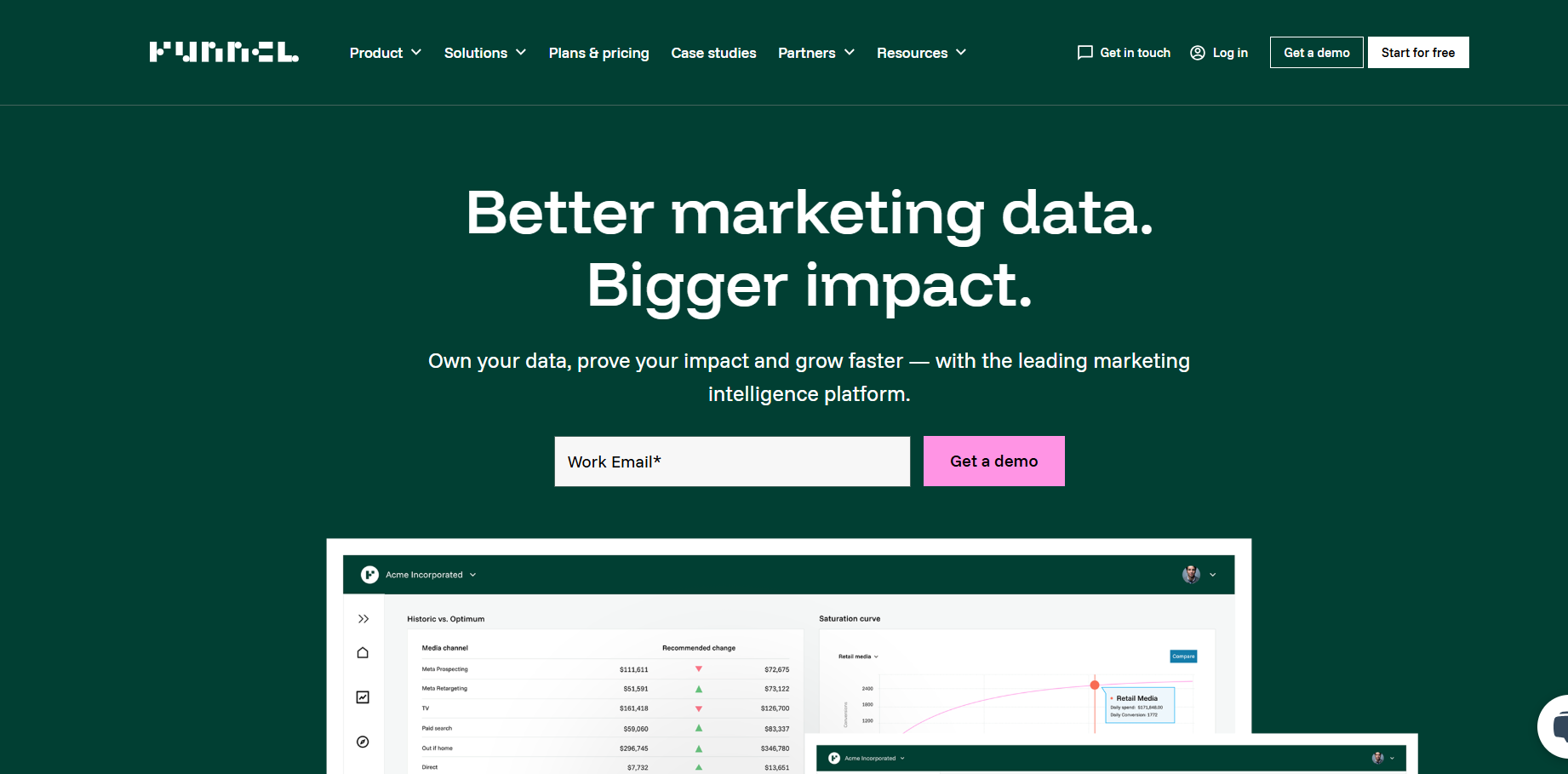
Funnel is a marketing intelligence platform designed to empower marketers by simplifying the process of collecting, analyzing, and utilizing their data. It centralizes information from ad platforms, CRMs, analytics tools, and more into one clean, connected hub.
Features:
- ETL/ELT Engine: Extract, transform, load your campaign data.
- Unified Schema: Standardized metrics across channels.
- Destination Connectors: Send to Google Data Studio, Power BI, etc.
Pros:
- Reduces manual spreadsheet work.
- Handles complex data transformations.
Cons:
- Configuration can be technical.
- Pricing scales steeply with volume.
Pricing:
- Custom pricing available
15. Hootsuite Analytics

Hootsuite provides social media management and analytics in one dashboard, covering publishing, monitoring, and reporting.
Features:
- Social Listening: Track brand mentions and sentiment.
- Post Performance: Engagement, clicks, and reach metrics.
- Team Productivity Reports: Approvals workflow insights.
Pros:
- All‑in‑one social suite.
- Collaboration tools for teams.
Cons:
- Analytics depth is limited compared to standalone tools.
- Access to historical data requires a higher-tier plan.
Pricing:
- Professional: $99/month
- Team: $249/month
- Business: $739/month
- Enterprise: Custom pricing
16. Sprout Social

Sprout Social blends publishing, engagement, and analytics, with strong reporting for both social and paid campaigns.
Features:
- ViralPost Scheduling: Optimize post timing.
- Tagging & CRM: Track customer conversations.
- Competitive Benchmarking: Compare your performance to peers.
Pros:
- Clean, export‑ready reports.
- Dedicated support and onboarding.
Cons:
- Pricier than some competitors.
- Limited free trials.
Pricing:
- Standard: $199/user/month
- Professional: $299/user/month
- Advanced: $399/user/month
- Enterprise: Custom pricing
17. BuzzSumo
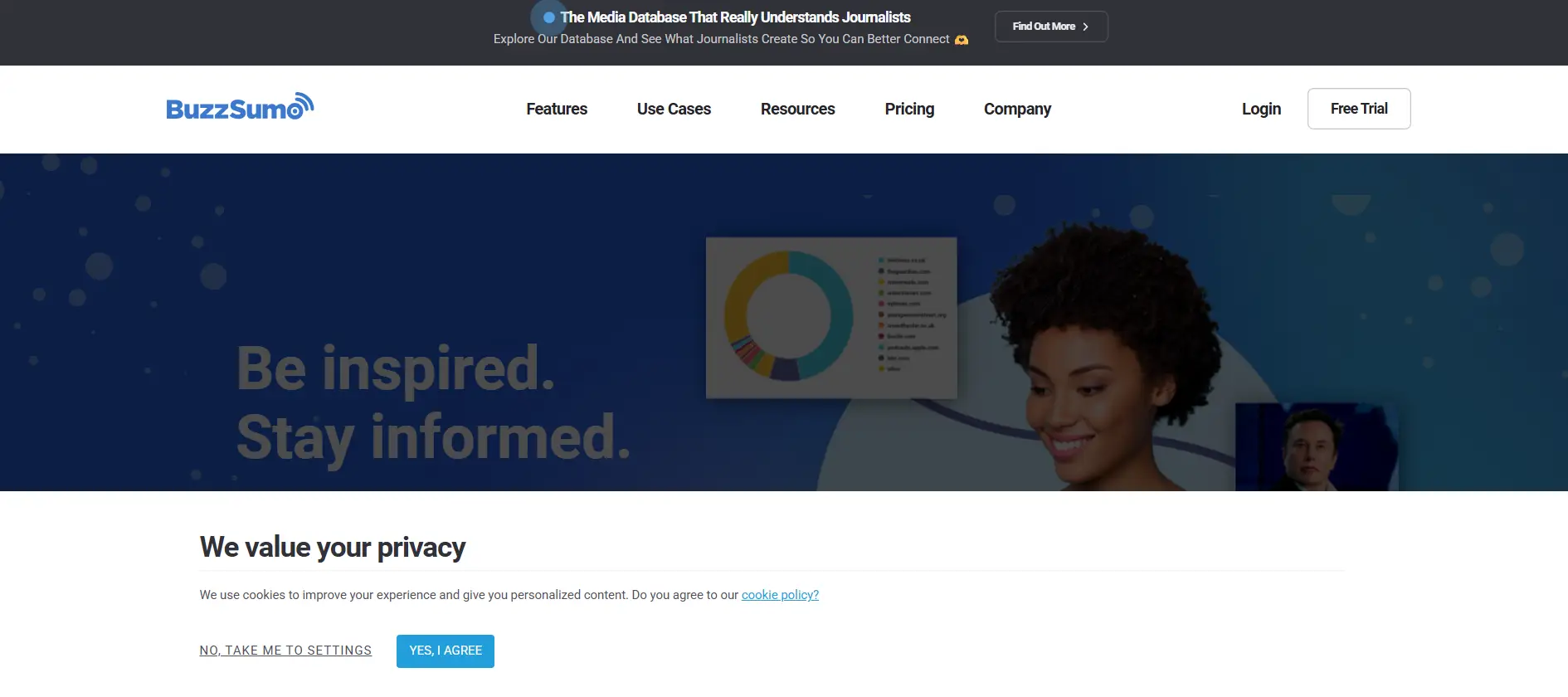
BuzzSumo identifies trending content and influencers, making it a go‑to for content marketers.
Features:
- Content Insights: Top‑performing articles and formats.
- Influencer Discovery: Find authors and influencers by niche.
- Alerts: Get notified on mentions or new backlinks.
Pros:
- Great for content ideation.
- Accurate social share metrics.
Cons:
- Limited on‑page or paid ad analytics.
Pricing:
- Content Creation: $199/month
- PR & Comms: $299/month
- Suite: $499/month
- Enterprise: $999/month
What Features Should I Look for in a Marketing Analytics Tool?
When deciding among the best marketing analytics tools, here are the must‑have capabilities to ensure you’re set up for success:
-
Multi‑Channel Data Integration
Your insights are only as good as your data. Look for tools that pull from social platforms, ad networks, email providers, CRM systems, and your website.
-
Real‑Time Analytics and Reporting
Lagging metrics can lead to missed opportunities. Real-time dashboards allow you to spot anomalies instantly and double down on what’s working.
-
Customizable Dashboards and Visualizations
Different stakeholders care about different KPIs. Look for drag‑and‑drop dashboards as these let you tailor reports for founders, marketers, or your finance team.
-
Easy Integration With Marketing Platforms
Look for digital marketing analytics tools that come with easy integrations as APIs and prebuilt connectors eliminate manual exports. The less time you spend wrangling data, the more time you have for strategy.
-
Predictive and Prescriptive Analytics
In 2025, look for digital marketing analytics tools that use machine learning to forecast trends and recommend optimizations, so you’re not just looking back at data but forward to growth.
-
Custom Event and Goal Tracking
From micro‑conversions like button clicks to macro‑goals like purchases, deep event tracking ensures you measure what matters.
-
Data Export and API Access
Sometimes you need to bring data into your own warehouse or BI tools. Robust export options and APIs keep your analysis flexible.
Conclusion
Choosing among the best marketing analytics tools in 2026 doesn’t have to be overwhelming. Whether you need the free power of GA4, the enterprise might of Adobe Analytics, or the unified simplicity of ViewMetrics, there’s a solution tailored to your budget and goals.
Just make sure to evaluate your options with your core needs in mind. So, ready to elevate your analytics game?
FAQs
1. Why are marketing analytics tools important?
Marketing analytics tools help businesses make data‑driven decisions, optimize marketing ROI, understand customer behavior, and track KPIs across multiple channels.
2. Which is the best free marketing analytics tool?
If you’re looking for a free marketing analytics tool that delivers real value, Google Analytics 4 (GA4) is hard to beat. It can track website and campaign performance effortlessly.
3. Can small businesses benefit from marketing analytics tools?
Yes, a lot of the best digital marketing analytics tools in the market offer scalable pricing and essential features that are well-suited for small to medium businesses.
4. Can marketing analytics tools track ROI?
Yes, there are many tools that help track ROI by allocating conversions to specific campaigns or channels.

